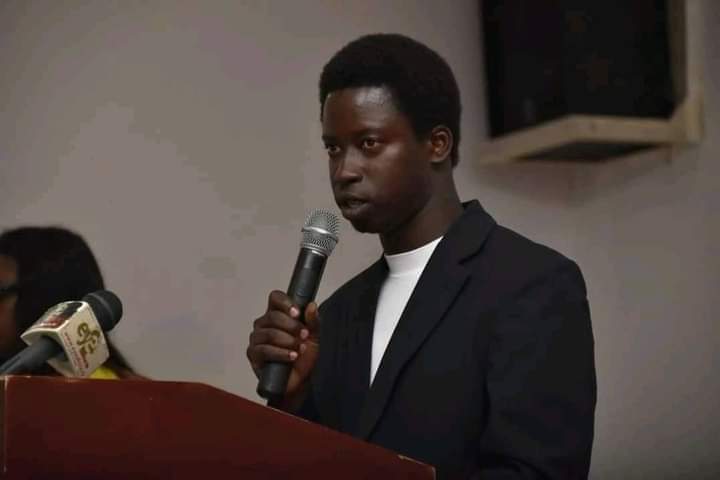
By Landing Ceesay
The Gambia’s standing in the global Press Freedom Index has taken a hit, dropping to 58th place worldwide and 10th in Africa, according to the latest report by Reporters Without Borders. Modou S. Joof, the Secretary General of the Gambia Press Union, attributed this decline to what he described as “bad media laws” within the country.
In 2023, The Gambia held the 46th spot globally with a score of 71.06 points. However, in the 2024 index, its global rank slipped to 58th place with a score of 65.53 points.
During the World Press Freedom Day celebrations organized by Freedom House, Mr. Joof highlighted the various factors contributing to the country’s downward trajectory, citing “bad media laws” as a primary concern.
“This year, the country dropped to 58th position globally (-12) and 10th in Africa (-5) in the global press freedom index. While this is still better than what obtains in a number of countries, the reason for the drop hinges on attacks on journalists, bad media laws, economic challenges, a lack of political will to ensure the safety of journalists and a lack of implementation of the Access to Information law.”
He further pointed out that despite an increase in the number of media outlets, Gambia remains mired in press freedom challenges, ranging from physical assaults on journalists to a lack of accountability for past crimes against journalists during the dictatorship era.
“We have witnessed in recent months direct threats to journalists and media houses from the current administration, which ignited calls on social media for attacks on individual journalists and media houses by political party militants affiliated with the ruling party. Journalists and media workers and human rights defenders have also faced arbitrary arrests by the police, detained incommunicado without access to family or lawyers with whereabouts unknown and in one instance physically assaulted while in custody, and released with or without charges,” Mr. Joof said.
The Secretary General of the GPU additionally mentioned that instances of physical assaults on journalists and media personnel, carried out by either police officers or members of political parties since 2017, have never been properly investigated, and those responsible have not been held to account.
Regarding reforms in media law, Mr. Joof explained that criminal defamation ceased to be applicable after being deemed unconstitutional by the Supreme Court in 2018. Furthermore, once the Criminal Offences Bill of 2020, which aims to repeal the Criminal Code, is passed, sedition laws will also become obsolete.
Contrary to expectations, Mr. Joof highlighted that the aforementioned bill, currently under review in Parliament since 2022, reintroduces the “False publication and broadcasting” law, which is seen as another oppressive provision in the nation’s legal framework.
“Contrary to commitments made on media law reforms, press freedom and freedom of expression, the Government is promulgating new laws like the Cybercrime Bill, 2023 with provisions aimed at restricting press freedom and freedom of expression targeted mainly at the media, human rights activists, opposition activists, and social media users,” he said.
Regarding Access to Information, Mr. Joof highlighted that The Gambia possesses access to information law vital for empowering the media in fostering accountability, safeguarding people’s right to information, promoting freedom of expression, and enhancing political engagement. He noted the government’s efforts to implement the law, albeit at a sluggish pace, through policy formulation and capacity enhancement initiatives.
“However, a lack of a clear direction in the form of a good framework is hindering much-needed progress to set up all the structures and mechanisms needed to operationalise the Access to Information Act, 2021.
“While commissioners have been identified, an Information Commission has not been established, the digital infrastructure to facilitate in part, obligations on proactive disclosure aren’t available, and government institutions have no Access to information implementation plans,” Mr. Joof said.
Mr. Joof stated that, the culture of hoarding public information which was entrenched during the dictatorship still continues.
“Journalists, civil society, the private sector, students, and members of the public still face challenges accessing public information,” he said.
Mr. Joof emphasized that May 3rd, designated as World Press Freedom Day, serves as a poignant reminder annually for governments and stakeholders to uphold their commitment to press freedom and freedom of expression.
This year’s theme for World Press Freedom Day is “A Press for the Planet: Journalism in the Face of the Environmental Crisis.” Mr. Joof elaborated that this theme underscores the vital role journalism plays in informing and educating people about the environmental and ecological challenges stemming from the current climate and biodiversity crises, impacting billions of lives worldwide.
World Press Freedom Day prompts contemplation on press freedom issues and underscores the crucial role of a free and independent press in amplifying the voices of marginalized communities and individuals affected by governmental or corporate actions. It also emphasizes the media’s role in holding the powerful accountable.
The occasion offers an opportunity for expressions of support and solidarity with the media, often targets of violations and abuses, particularly by governments.
Furthermore, the celebration serves as a reminder of the imperative to safeguard fundamental human rights, including the right to information, freedom of speech, opinion, and expression, enshrined in the United Nations’ Universal Declaration of Human Rights.
To reinforce the commitment to upholding these values, the United Nations adopted the International Covenant on Civil and Political Rights (ICCPR), a legally binding treaty, which expands on the right to freedom of expression.
The ICCPR affirms that “Everyone shall have the right to freedom to seek, receive and impart information and ideas of all kinds, regardless of frontiers, either orally, in writing or in print, in the form of art, or through any other media of choice.”
Building upon these principles, the UNESCO Conference on “Promoting an Independent and Pluralistic African Press” in Windhoek, Namibia, in 1991, adopted the Declaration of Windhoek. Subsequently, May 3rd was proclaimed as World Press Freedom Day by the United Nations, commemorating the adoption of the Declaration.
